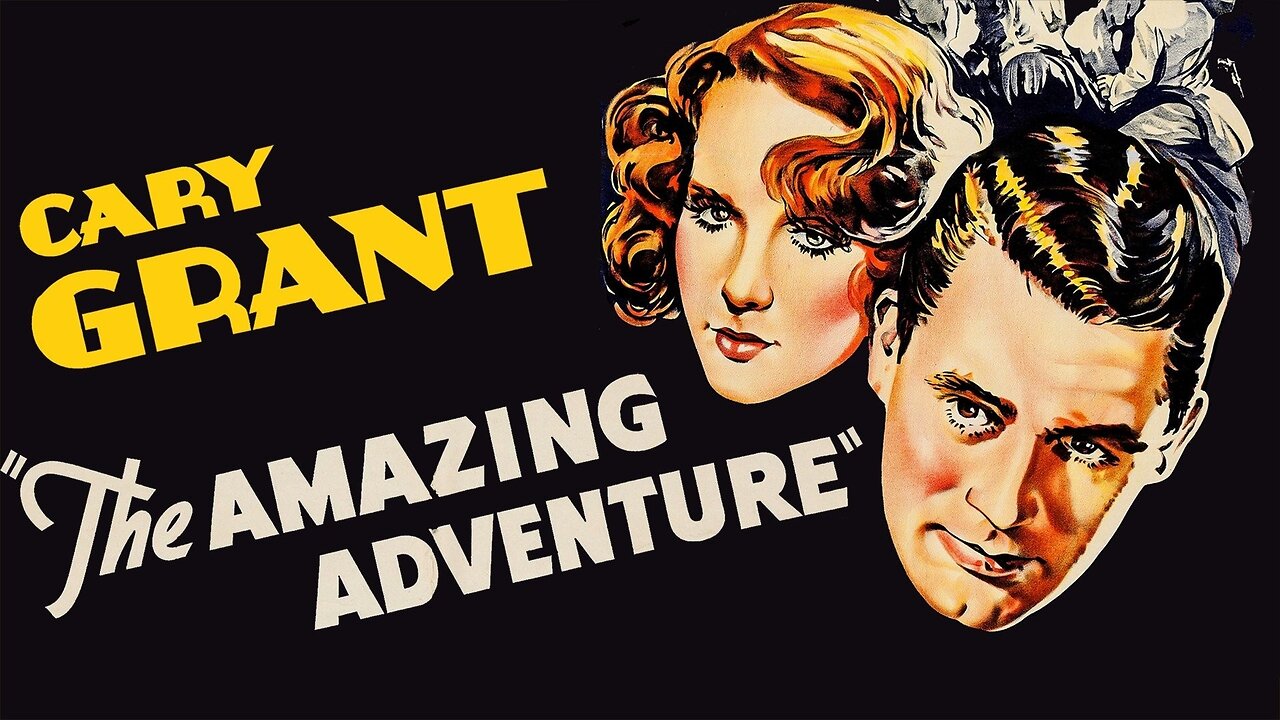Premium Only Content

THE AMAZING ADVENTURE (1936) Cary Grant & Mary Brian | Drama, Romance, Comedy | COLORIZED
The Amazing Quest of Ernest Bliss is a 1936 British romantic comedy film directed by Alfred Zeisler and starring Cary Grant. It is a remake of the 1920 film The Amazing Quest of Mr. Ernest Bliss,[1] based on The Curious Quest, a 1919 novel by E. Phillips Oppenheim.
The film was issued in the United States in 1937 under the title The Amazing Adventure (and subsequently Romance and Riches), but edited down to 62 minutes from the reputed original UK running time of 80 minutes. All currently circulating copies are of the US edit, but the British Film Institute has several archive prints of 77 minutes in length.[2] The film is often believed to be in the public domain and appears on many budget VHS and DVD releases, but as director Alfred Zeisler did not die until 1985, UK copyright subsists until the end of 2055. As a non-US film still under copyright in its country of origin on 1 January 1996, it is protected in the US for 95 years after publication, so to the end of 2031.
SYNOPSIS
A bored millionaire wagers his doctor that he can support himself at a working class job for year without touching his inheritance.
In London, rich, idle socialite Ernest Bliss (Cary Grant) feels out of sorts for no discernible reason. He sees a doctor, Sir James Aldroyd, who bluntly informs him that he is suffering from too much money, and that he would be cured if he lived for a year on a few pounds per week. Bliss is so insulted that he makes a bet for £50,000 with Sir James that he can survive for a year, supporting himself solely on whatever he earns and not touching his inherited millions.
CAST & CREW
Cary Grant as Ernest Bliss
Mary Brian as Frances Clayton
Peter Gawthorne as Sir James Alroyd
Henry Kendall as Lord Honiton
Leon M. Lion as Dorrington
John Turnbull as Masters
Arthur Hardy as Crawley
Iris Ashley as Clare
Garry Marsh as The Buyer
Andreas Malandrinos as Giuseppi
Alfred Wellesley as Montague
Marie Wright as Mrs. Heath
Buena Bent as Mrs. Mott
Charles Farrell as Scales
Quinton McPherson as Clowes (as Quinton MacPherson)
Hal Gordon as Bill Bronson
Directed by Alfred Zeisler
Written by John L. Balderston (writer), E. Phillips Oppenheim (novel)
Produced by Alfred Zeisler
Cinematography Otto Heller
Edited by Merrill G. White
Distributed by United Artists
Release dates 28 July 1936 (UK), 27 February 1937 (US)
Running time 80 minutes (UK), 62 minutes (US)
Country United Kingdom
Language English
NOTES
Variety thought it "a bit old-fashioned and present-day filmgoers may regard it as implausible. Coincidences are highly improbable, and the whole thing, despite excellent direction and acting, moves at a pace that demands a large measure of cutting before being offered to the general public... Cary Grant looks and acts the part with deft characterization. He secures laughs easily and apparently without effort. Mary Brian plays the role of the typist with a metallic harshness which would be more in keeping with the gold-digger. One expects more feminine softness and sympathy from such a role. Most of the other actors and actresses are adequate, and production details are very good".
In his book British Popular Films 1929-1939: The Cinema of Reassurance, Stephen Shafer notes that the plot was intended to appeal to working-class filmgoers, as it gave over the message that their lives were more fulfilling than those of millionaires. Shafer writes:
Obviously, the thrust of The Amazing Quest of Ernest Bliss implied that the "earnest bliss", suggested by the pun in the title, which the protagonist sought could be obtained by hard work, generosity, and self-sacrifice, all concepts with which working-class individuals in real life might well be familiar. Clearly, Bliss's happiness was to be derived from people rather than money which had created his isolation as a millionaire and left him depressed. ... the subtle theme of the feature was that the ordinary moviegoer ought to be grateful in some respects for the simple pleasures in life which he could enjoy but which the wealthy ordinarily did not experience.[
-
 1:04:38
1:04:38
Lost n Found Films
5 days agoADVENTURE IN IRAQ (1943)John Loder, Ruth Ford & Warren Douglas | Adventure| B&W | Vintage Cinema
751 -
 16:30
16:30
SNEAKO
16 hours agoNO FRIENDS IN THE INDUSTRY.
109K29 -
 6:19
6:19
BlackDiamondGunsandGear
1 day agoHow Fat Guys can Appendix Carry
75.7K10 -
 6:58
6:58
Gun Owners Of America
1 day ago2024 Was Huge For Gun Rights, Here's Our Top 10 Wins!
62.3K4 -
 15:50
15:50
Degenerate Jay
1 day ago $2.39 earnedJames Bond Is Being Ruined By Amazon? Make Him A Black Gay Woman?
46.8K11 -
 15:18
15:18
DeVory Darkins
1 day ago $18.74 earnedTrump Drops NIGHTMARE Warning on Joe Biden
61.7K102 -
 36:13
36:13
The Why Files
1 month agoAlien Implants Vol. 1: Devil’s Den UFO Encounter: What Was Found Inside Terry Lovelace?
84.8K40 -
 9:03
9:03
Alabama Arsenal
1 day ago $0.81 earnedAAC HUB 2K | Modern Features, Iconic Classic Looks
20.3K1 -
 13:49
13:49
Dermatologist Dr. Dustin Portela
2 days ago $1.71 earnedDermatologist Reveals the Worst Things To Do To Your Skin
17.1K10 -
 1:02:24
1:02:24
PMG
1 day ago $0.59 earned"Hannah Faulkner and Jamie Villamor | DEFEND, INSPIRE, INFLUENCE"
13.4K